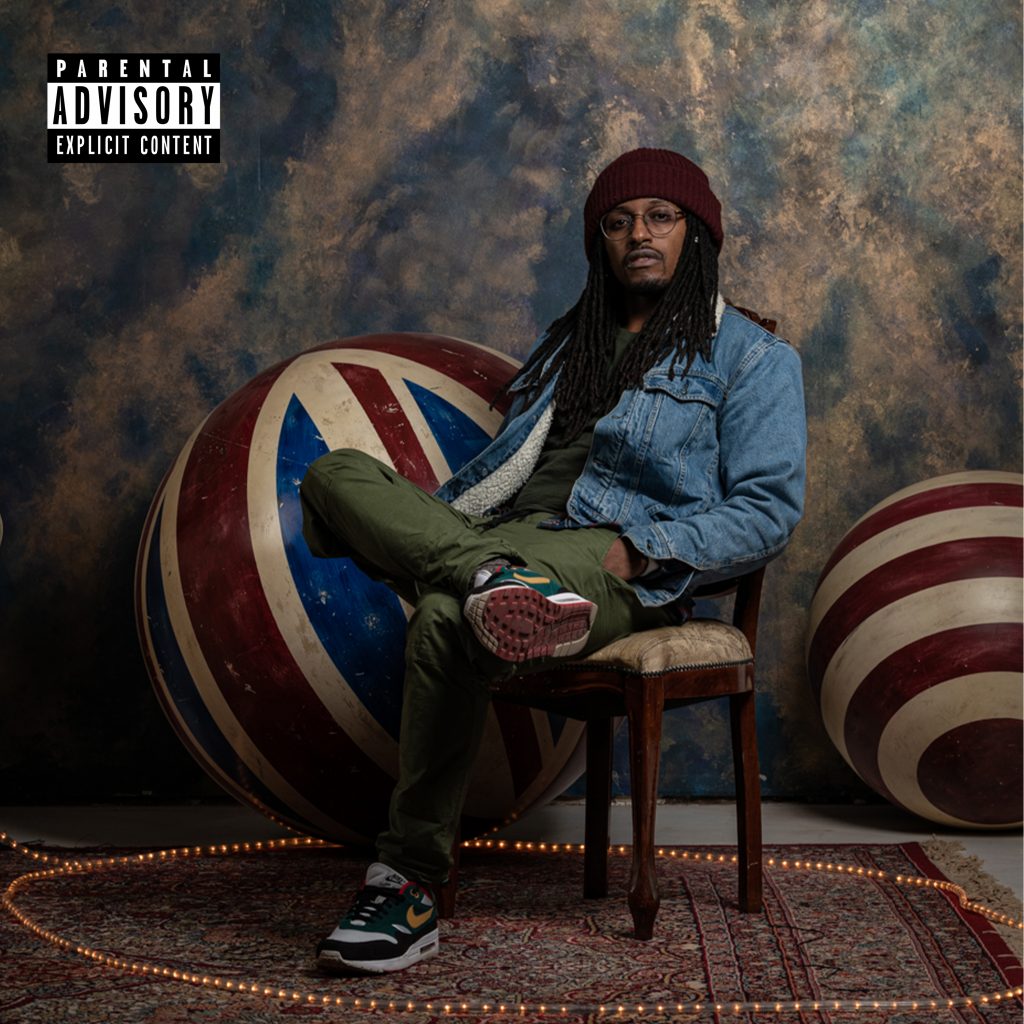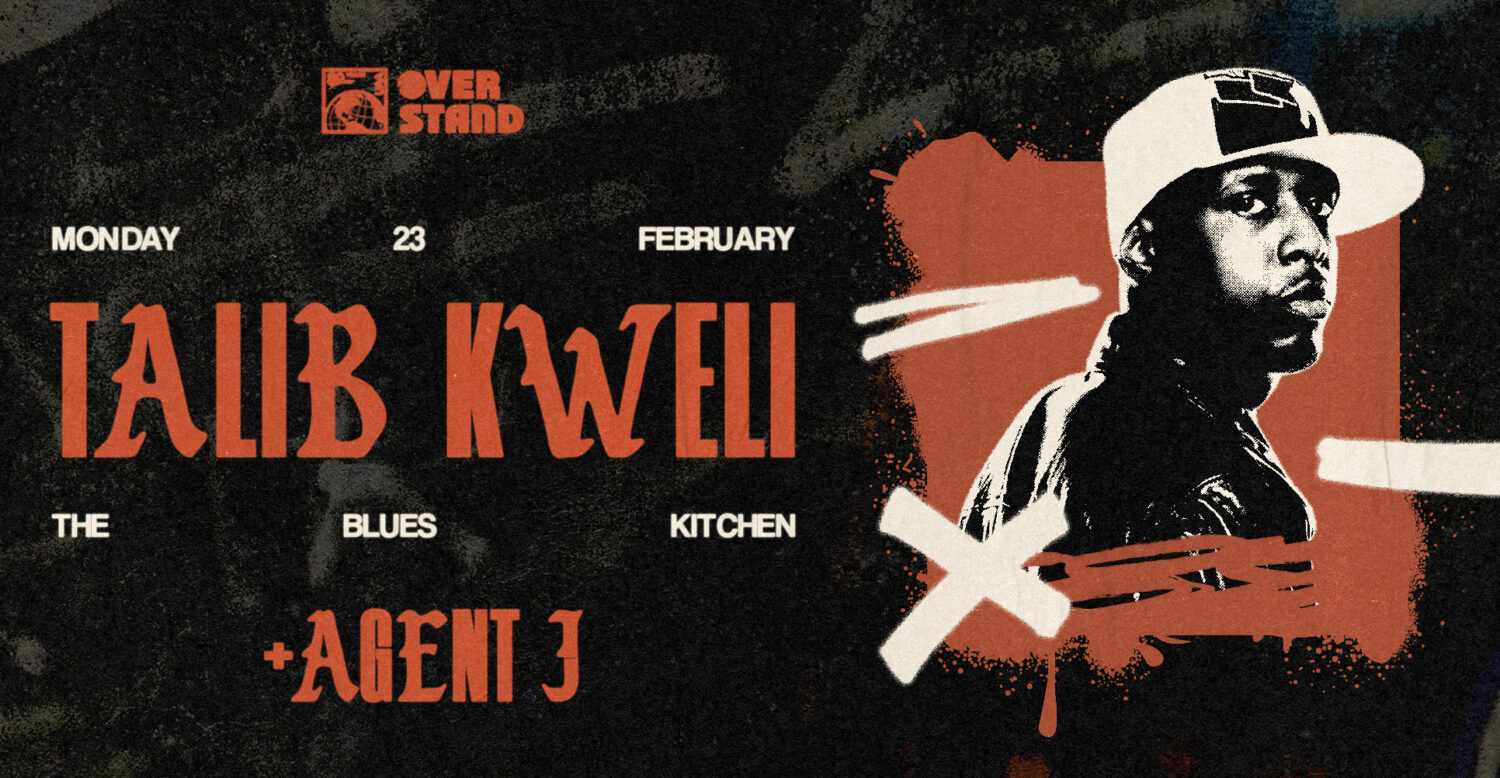Interview: J Chambers on Escape The Kingdom
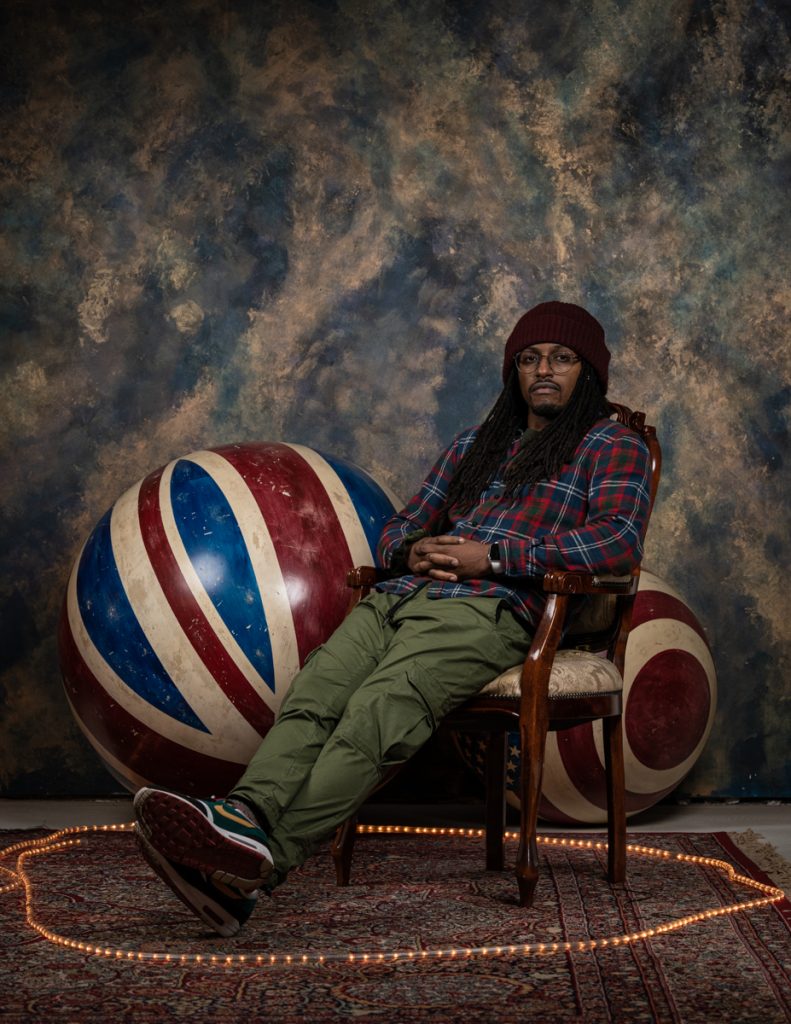
Press Play:
Well known on the Manchester music scene when it was thriving owing to his live shows and support from the likes of BBC Introducing, J Chambers has recently gained more national recognition through his appearance on Blue Peter with a poem which acted as both a tribute and advice to young people, and has even been featured on BBC Bitesize speaking about internet safety.
I write this 20 years your senior / With the demeanour of making a change / Know that the light in you / Is the spark for adults to see error of ways
His long-awaited album Escape The Kingdom is out today, over a year in the making (and what a year) and the result of a long process of self reflection – J’s music is a celebration and signal flare of living as a Black British individual in a country where structural racism’s prevalence affects daily life.
In the time I’ve known J, I’ve always felt a tinge of regret that our relationship formed after In The Loop had had its day – a club night I used to co-run in Manchester, MCs and singers would jump on the mic over the night and deliver bars over a live band, and spend the rest of the night networking and chilling, bathing in shared love for music and the arts. The truth is, though, that J has flourished by carving out his own path, putting out project after project and building his own hype with consistency and passion (and ample support from the likes of Midication Records, Global Faction and the Virus Syndicate crew).
Escape The Kingdom, while J’s debut long player, is a follow-up to the equally-well thought out New Levels, New Devils EP – check that out and all his past music over on his Bandcamp.
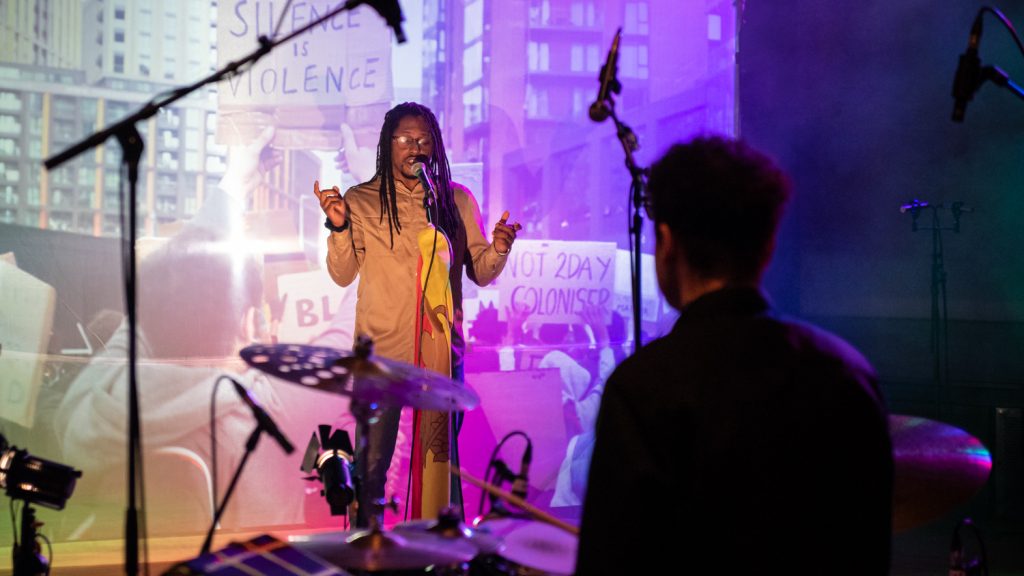
How would you describe what you do?
I think I would describe what I do as just being a wordsmith, I use poetry, rapping, recording etc to express my wider message and try to tell my story.
I think the story I mainly try to tell is just rooted in reality, growing up in England and unpicking the stories and experiences that have shaped the adult I’ve become.
The themes of Escape The Kingdom are interwoven into national (and international, but with a very British slant, in particular to deportation) issues that are prevalent to someone who is Black, but only making headlines and changing curriculums in the past few months. Do you feel more charged than every to bring yours and others stories to the front, and do you feel like more people are ready to listen? As a socially conscious artist, do you worry about being pigeonholed as always having to have a message?
I think that change is being made which is positive, and sure yeah this change is a big driver in wanting to push the narrative forward in the hopes that it falls on ears of understanding. I think that more people are ready to listen to the stories, but I’m also apprehensive as when you read other publications when they’re discussing the impact of difference, we can see that there are groups of young people, middle aged and old who just are not at the point in which they will accept nor be open to understanding the message.
Whenever we’re discussing societal structures or institutions that are sustained around layers of privilege, I think that it is easy for people to close themselves off rather than to be open to the idea of it. So ultimately, I hope that the message is received on ears of understanding and that it can be used as a stimulus to open up wider conversations.
I used to worry about being pigeonholed, but now not so much. I think it’s a by product of the mass amounts of music and creativity that is out there. I think that people like to give music labels because its easier to digest and ultimately if someone wants to place me in the socially conscious category, it doesn’t really change anything for me or the music I make… it just means that they view me in a certain way and thats okay, really.
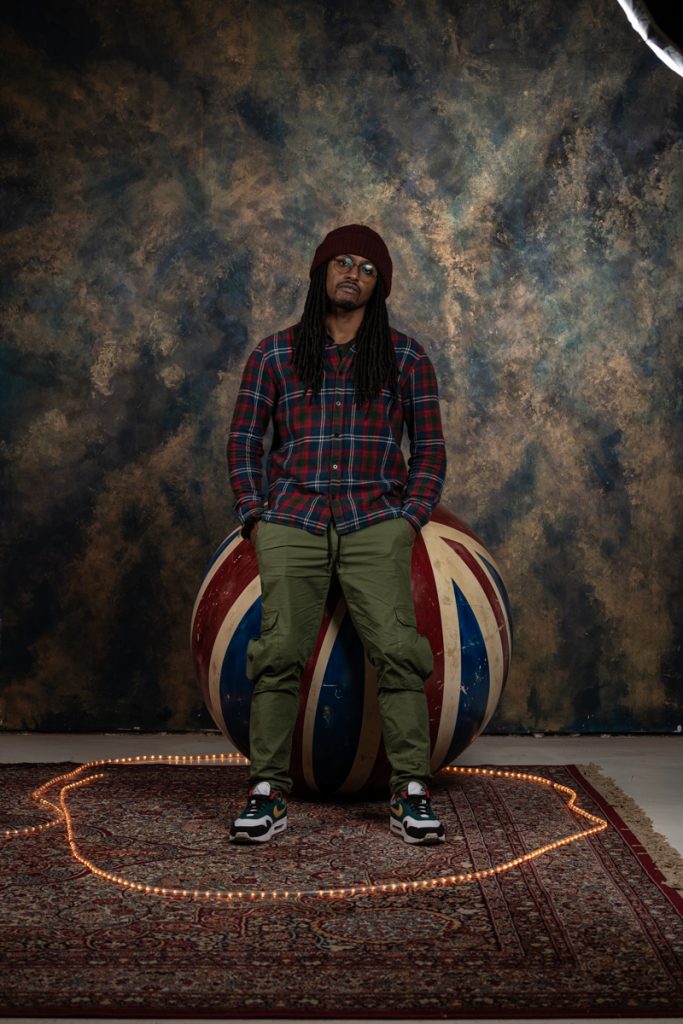
Rend your heart and not your garment
Fill me in about the musical family around you over the past few years, and who you’ve made this album with.
My family have always been musical on both sides, my father used to DJ and MC in blues parties back in the day and my mother used to sing in bands. I’ve got cousins who are singers, rappers some are dancers some are actors/ ‘influencers’ so we’ve got a really creative family.
I’ve collaborated with one of my cousins who raps under the name Vindi on a couple of his songs, the most recent entitled Family Tree which is taken from his Vibes and Reflection project. We also collaborated on another one of his songs called Prevail which was really fun.
This whole project was started by a collaboration with my cousin Leon, who sang under the name 2Nice, it’s kind of a mad story still, I’ve not really spoken about it much, but here it is.
We lost touch for a few months in the madness of life and reconnected early February last year and immediately began to talk about music. He had a song that he wanted me to do a verse on which was sick, and at that time I had the instrumental for 2:13/2:18 for a while and so I sent it to him and told him my ideas for the concept. We went back and forth all morning sending voice notes of ideas, and we stopped talking around mid day on the 3rd of feb.
Later that day I started to see tributes to him on social media being shared by family and other musicians who he’d worked with like Wiley & Congo Natty. So, I called his brother and he let me know that he’d unexpectedly passed away, literally hours after speaking. The chorus you hear on 2:13/2:18 was actually taken from the voice notes he sent me as we never got the chance to record it properly – upon speaking to his brother it turns out I was the last person to speak to him so actually it’s kinda ended up being his last words. His last message to me was the voice note of his idea and the actual scripture in which the song chorus comes from which was : “Rend your heart and not your garment” – Joel 2:13
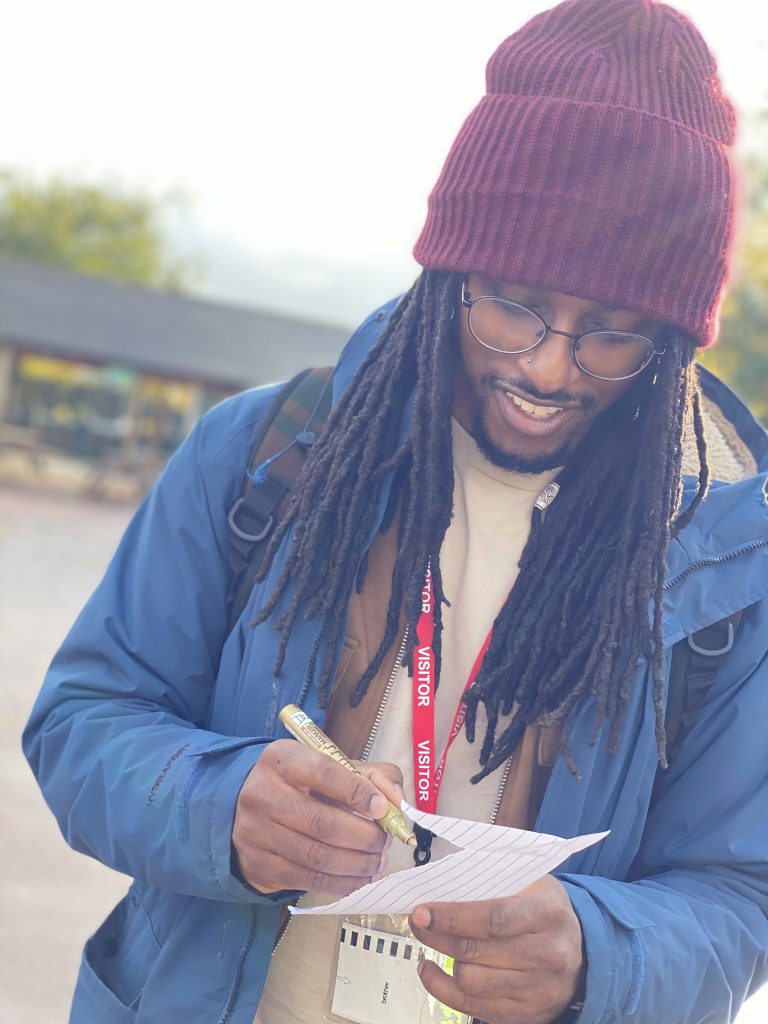
What was the process of making the album? I know it’s been a long road.
This album was the first kind of body of music that came around in an organic way. Most times when I go into the studio with JSD (of Virus Syndicate), I’ll have a specific concept in mind for the project and know how each song plays into the wider narrative. Whereas with this project, I kind of went in blind. Its been a great process, I’ve worked with JSD for the last few years and we really have a great energy in the studio, he’s one of the rare few who can capture your ideas and energy perfectly within his production. He’s been a big mentor for me in my last few years of growth.
The beat for 2:18/2:13 was made shortly after New Levels New Devils (2018) so I sat on it for a year before it felt like the right time, I sent it to 2Nice with an idea and then it started from there. I guess when that song came together we (me and JSD) liked the vibe and so made another and before you know, it here we are.
The process of writing this has kinda been cathartic with the events of the last year both societally and reflecting on incidents within my growing up here that has made me into the person I am. Exploring thoughts, feelings, memories has been an interesting process, a lot of blood sweat and tears has gone into this. I guess thats why the visual aesthetics of each piece has been so strong as I’ve had a clear direction of what I was trying to represent.

There’s a strong reggae influence across the album, was that your first love when it comes to music?
I guess so, like growing up my parents played a lot of reggae, particularly my dad – he really doesn’t like or listen to much else, so being in the back of the car I heard a lot. Also at like family gatherings, occasions and visits, reggae music was always the soundtrack, I think for many black people reggae music has soundtracked particular moments and memories within their lives.
I think that reggae also opened up my ears and mind to the ability/ option of having a deeper societal message within your music which was cool to me as it was a way of being connected with what is going on all over the world.
Your profile has blossomed in different ways over the past 12 months – Beat Horizon, Withington Walls with Akse, you ‘accidentally’ led part of the initial Manchester march following George Floyd’s death, there were murmurings of a badly-phrased BBC radio interview, you’ve appeared on Blue Peter and BBC BItesize, discussed race issues in education with Kids Of Colour and more, you’ve inspired children and even been chosen as a house captain in a primary school – in your own words could you tell me about those experiences and what you’e learned along the way? Or what you’d do differently, if anything?
Haha oh yeah!! I forgot about that stupid question I was asked, anyways…
It’s mad as I’ve not really reflected much on the last year, I think sometimes thats an issue I have as person. I’m always focused on the next thing and don’t take too much time to think about what I’ve done. But yeah its all mad. Its been amazing to see how much positive impact I’ve managed to have through my work particularly with the Black History Month piece, being contacted by Primary Schools, High Schools and Colleges to discuss my work and send messages in to the young people has been really cool. It was great to see the work resonate in the way in which I intended it to. That definitely reinforced the reasons that I make music, which ties back into the earlier question you asked about pigeonholing. I guess if you looked at the achievements of the last year I would be classified as a ‘socially conscious artist’ which is a good thing I guess. Also being chosen as a House Captain in a primary school is pretty amazing, it still trips me out to think that there is a little year group who have my surname as their group name. Shouts to Birchfields Primary, they’re doing a lot of great work over there!
I’ve learnt that we never truly know the impact of our work, sometimes as artists we can get wrapped up in the ecosystem of constantly creating and releasing art as we know how quickly consumed it is these days. However this year has taught me that it’s ok to take the time to craft and sit and wait, as if it’s right it will resonate and be received correctly. Like My Antenna came out in summer and I’ve still got natural hair blogs and pan African pages sharing and sending me messages of appreciation for capturing something beautiful (shouts to RB on the visual, as he really brought the poem to life).
There is nothing that I would do differently as this year hasn’t had many plans, due to the circumstances surrounding the impact of covid. I just kind of did what felt right, when it felt right and everything came together organically, so I wouldn’t change anything because if I did I might not be in the position in which I am in now.
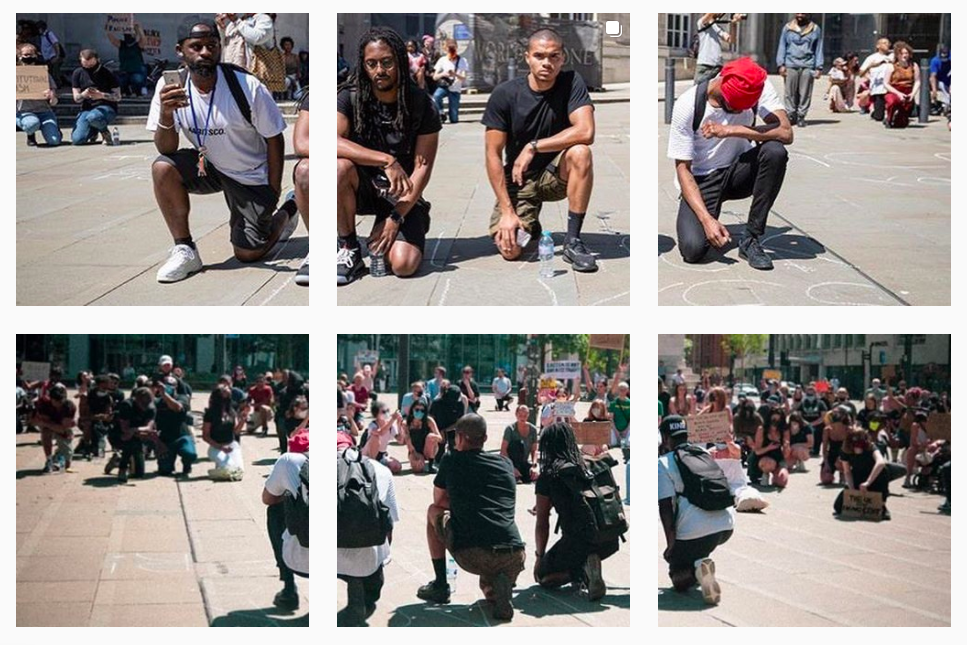
How do you feel about your profile being raised with young people? Will it change the way you make music?
I think its cool that I’ve got an emerging younger audience, as demographically speaking my audience generally is 25 + if you look at streaming data, so it is deffo nice to see more young people enjoying it. I don’t think it will change the way I make music as I try to make my music in ways in which it can be enjoyed by everyone. However with that said, I have been doing more spoken word work for the BBC on different subject to help kids understand the importance of things like online safety. Maybe it will have an impact in terms of the lanes you might see some of my spoken word work in, but it won’t change my music or the message I have.
Back to my initial question, what do you want the audience to get from the album?
I think for me it’s just the understanding that we have issues over here, I think the immediate response when we talk about racial discrimination is ‘well at least its not as bad as America’. Well is not as bad, good enough?
I think that before we look at other places we need to get our own house in order and acknowledge that there is still a lot of work to be done here.
The project deliberately focuses on these issues from a British standpoint. This is deliberate as I hope it will get people to perhaps open themselves up to conversations around discrimination, profiling and police misconduct. Also perhaps the optimist in me hopes that it will lead to people perhaps conducting their own research and learning more about what is going on at the moment, like Moyeid Bashir and Mohammed Hassan, who were two men of colour in Wales who have died after being in police custody – Mohamud in Cardiff and Moyeid in Newport. Both have received little coverage with regards to the incidents nor the subsequent protests surrounding the events leading up to their passing.
How does it compare and contrast to New Levels and your other previous works?
It doesn’t, I think. Escape The Kingdom is in a league of its own compared to my other works. I think I was experimenting and trying to find my sound and with this project because it was organically created, it sounds and feels more real and I think there is something for everyone on the project and I’m excited to share it with everyone.
With regards to issues like deportation that kicked off this project, what needs to change in the UK now, and what changes do you hope for in the longer term?
Honesty. I think that encompasses everything that is needed to truly create the needed change. Honesty in conversations about our history, what the empire did and what it now represents. Honesty in discussions around how difference impacts our lives in different ways. I think that if we had more honesty and understanding we could move forward and interact together in a better way.
Escape The Kingdom is out now – support directly on Bandcamp here.
